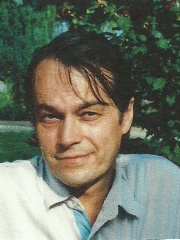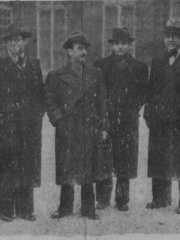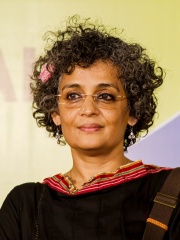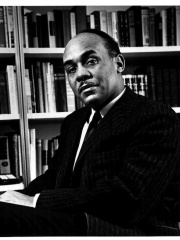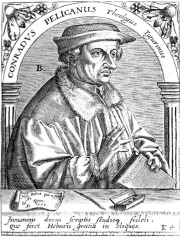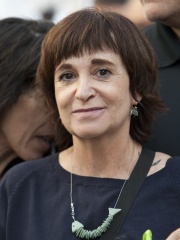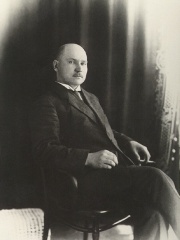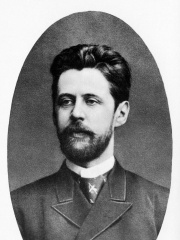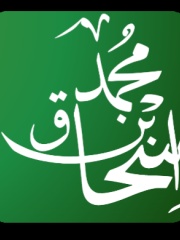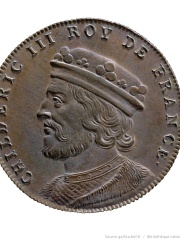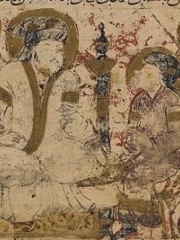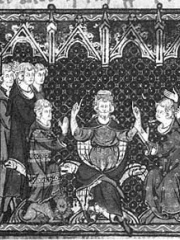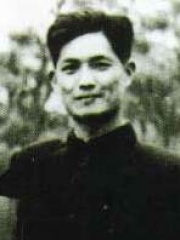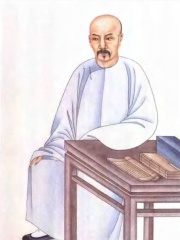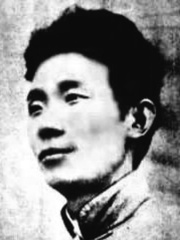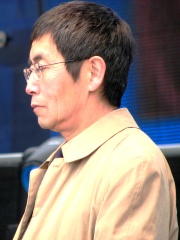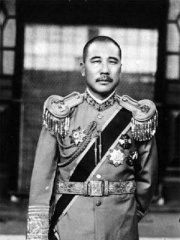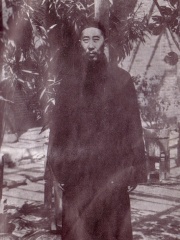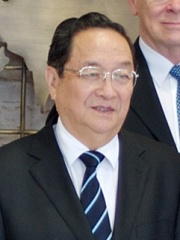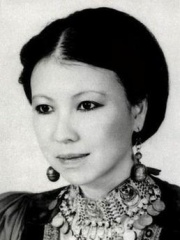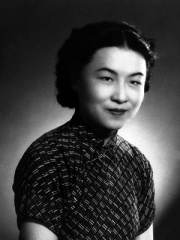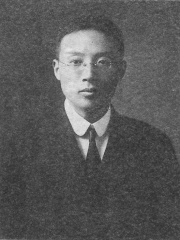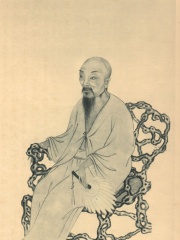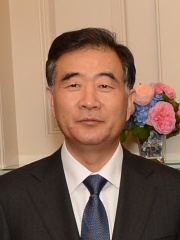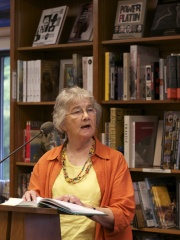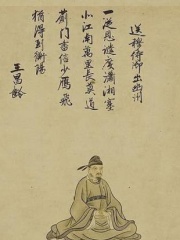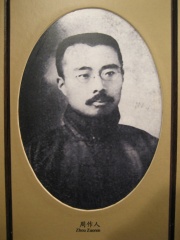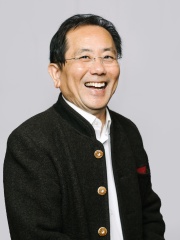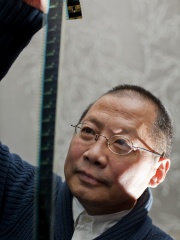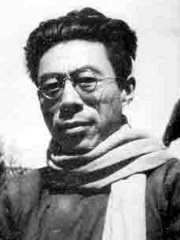WRITER
Cui Hao
704 - 754

 Cui Hao
Cui Hao
Cui Hao (simplified Chinese: 崔颢; traditional Chinese: 崔顥; pinyin: Cuī Hào; Wade–Giles: Ts'ui Hao, 704?–754) was a Chinese poet of the Tang dynasty in China and considered a main early exponent of the regulated verse form of Classical Chinese poetry (also known as jintishi). Read more on Wikipedia
His biography is available in 15 different languages on Wikipedia. Cui Hao is the 4,019th most popular writer (down from 3,826th in 2024), the 824th most popular biography from China and the 96th most popular Chinese Writer.
Memorability Metrics
Page views of Cui Hao by language
Among WRITERS
Among writers, Cui Hao ranks 4,019 out of 7,302. Before him are Bat Ye'or, Savo Kostadinovski, Roger Vitrac, Arundhati Roy, Abbas Ibn al-Ahnaf, and Ralph Ellison. After him are Konrad Pellikan, Alexander Neckam, Rosa Montero, Oskar Luts, Abu'l-Fadl Bayhaqi, and Innokenty Annensky.
Most Popular Writers in Wikipedia
Go to all RankingsBat Ye'or
1933 - Present
HPI: 57.97
Rank: 4,013
Savo Kostadinovski
1950 - Present
HPI: 57.97
Rank: 4,014
Roger Vitrac
1899 - 1952
HPI: 57.96
Rank: 4,015
Arundhati Roy
1961 - Present
HPI: 57.96
Rank: 4,016
Abbas Ibn al-Ahnaf
750 - 808
HPI: 57.96
Rank: 4,017
Ralph Ellison
1914 - 1994
HPI: 57.96
Rank: 4,018
Cui Hao
704 - 754
HPI: 57.96
Rank: 4,019
Konrad Pellikan
1478 - 1556
HPI: 57.96
Rank: 4,020
Alexander Neckam
1157 - 1217
HPI: 57.96
Rank: 4,021
Rosa Montero
1951 - Present
HPI: 57.96
Rank: 4,022
Oskar Luts
1887 - 1953
HPI: 57.96
Rank: 4,023
Abu'l-Fadl Bayhaqi
995 - 1077
HPI: 57.96
Rank: 4,024
Innokenty Annensky
1855 - 1909
HPI: 57.95
Rank: 4,025
Contemporaries
Among people born in 704, Cui Hao ranks 3. Before him are Ibn Ishaq, and Saint Sturm. Among people deceased in 754, Cui Hao ranks 7. Before him are Saint Boniface, Childeric III, As-Saffah, Carloman, Hiltrud, and Anastasius of Constantinople.
Others Born in 704
Go to all RankingsIbn Ishaq
HISTORIAN
704 - 767
HPI: 73.22
Rank: 1
Saint Sturm
RELIGIOUS FIGURE
704 - 779
HPI: 59.19
Rank: 2
Cui Hao
WRITER
704 - 754
HPI: 57.96
Rank: 3
Others Deceased in 754
Go to all RankingsSaint Boniface
RELIGIOUS FIGURE
680 - 754
HPI: 77.14
Rank: 1
Childeric III
POLITICIAN
714 - 754
HPI: 75.49
Rank: 2
As-Saffah
POLITICIAN
722 - 754
HPI: 73.78
Rank: 3
Carloman
POLITICIAN
710 - 754
HPI: 70.70
Rank: 4
Hiltrud
POLITICIAN
715 - 754
HPI: 60.54
Rank: 5
Anastasius of Constantinople
RELIGIOUS FIGURE
HPI: 58.12
Rank: 6
Cui Hao
WRITER
704 - 754
HPI: 57.96
Rank: 7
In China
Among people born in China, Cui Hao ranks 824 out of 1,610. Before him are Song Ping (1917), Dai Zhen (1724), Yu Dafu (1896), Bei Dao (1949), Zhang Zongchang (1881), and Jin Shuren (1879). After him are Yu Zhengsheng (1945), Sanmao (1943), Yang Jiang (1911), Chen Qimei (1878), Yun Shouping (1633), and Wang Yang (1955).
Others born in China
Go to all RankingsSong Ping
POLITICIAN
1917 - Present
HPI: 58.03
Rank: 818
Dai Zhen
MATHEMATICIAN
1724 - 1777
HPI: 58.01
Rank: 819
Yu Dafu
WRITER
1896 - 1945
HPI: 57.99
Rank: 820
Bei Dao
WRITER
1949 - Present
HPI: 57.98
Rank: 821
Zhang Zongchang
MILITARY PERSONNEL
1881 - 1932
HPI: 57.97
Rank: 822
Jin Shuren
POLITICIAN
1879 - 1941
HPI: 57.97
Rank: 823
Cui Hao
WRITER
704 - 754
HPI: 57.96
Rank: 824
Yu Zhengsheng
POLITICIAN
1945 - Present
HPI: 57.95
Rank: 825
Sanmao
WRITER
1943 - 1991
HPI: 57.90
Rank: 826
Yang Jiang
WRITER
1911 - 2016
HPI: 57.90
Rank: 827
Chen Qimei
SOCIAL ACTIVIST
1878 - 1916
HPI: 57.87
Rank: 828
Yun Shouping
PAINTER
1633 - 1690
HPI: 57.85
Rank: 829
Wang Yang
POLITICIAN
1955 - Present
HPI: 57.78
Rank: 830
Among WRITERS In China
Among writers born in China, Cui Hao ranks 96. Before him are Katherine Paterson (1932), Wang Changling (698), Zhou Zuoren (1885), Ma Duanlin (1245), Yu Dafu (1896), and Bei Dao (1949). After him are Sanmao (1943), Yang Jiang (1911), You Xie (1958), Dai Sijie (1954), Zhang Jie (1937), and Wen Yiduo (1899).
Katherine Paterson
1932 - Present
HPI: 58.42
Rank: 90
Wang Changling
698 - 756
HPI: 58.40
Rank: 91
Zhou Zuoren
1885 - 1967
HPI: 58.23
Rank: 92
Ma Duanlin
1245 - 1322
HPI: 58.10
Rank: 93
Yu Dafu
1896 - 1945
HPI: 57.99
Rank: 94
Bei Dao
1949 - Present
HPI: 57.98
Rank: 95
Cui Hao
704 - 754
HPI: 57.96
Rank: 96
Sanmao
1943 - 1991
HPI: 57.90
Rank: 97
Yang Jiang
1911 - 2016
HPI: 57.90
Rank: 98
You Xie
1958 - Present
HPI: 57.77
Rank: 99
Dai Sijie
1954 - Present
HPI: 57.28
Rank: 100
Zhang Jie
1937 - 2022
HPI: 57.22
Rank: 101
Wen Yiduo
1899 - 1946
HPI: 56.59
Rank: 102

